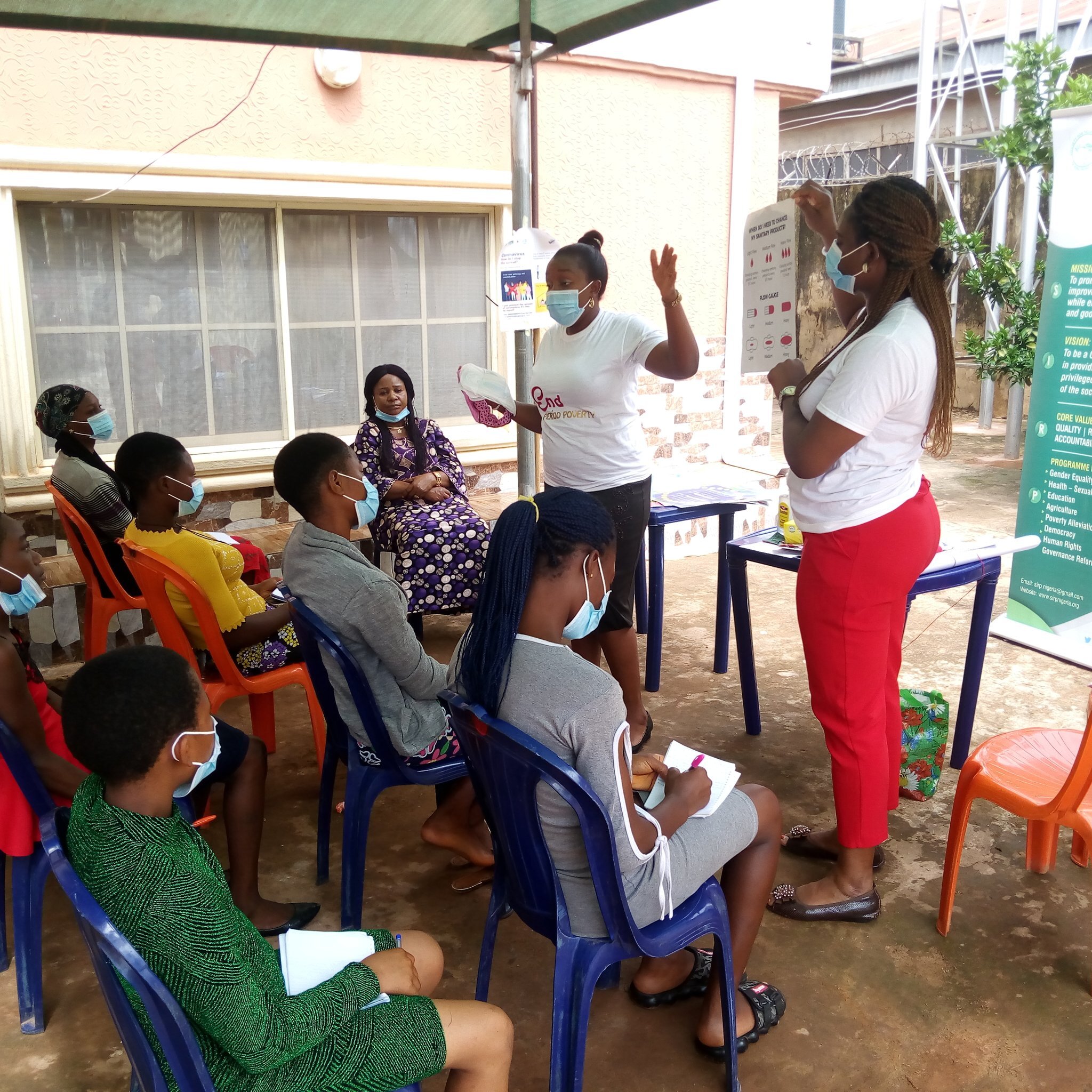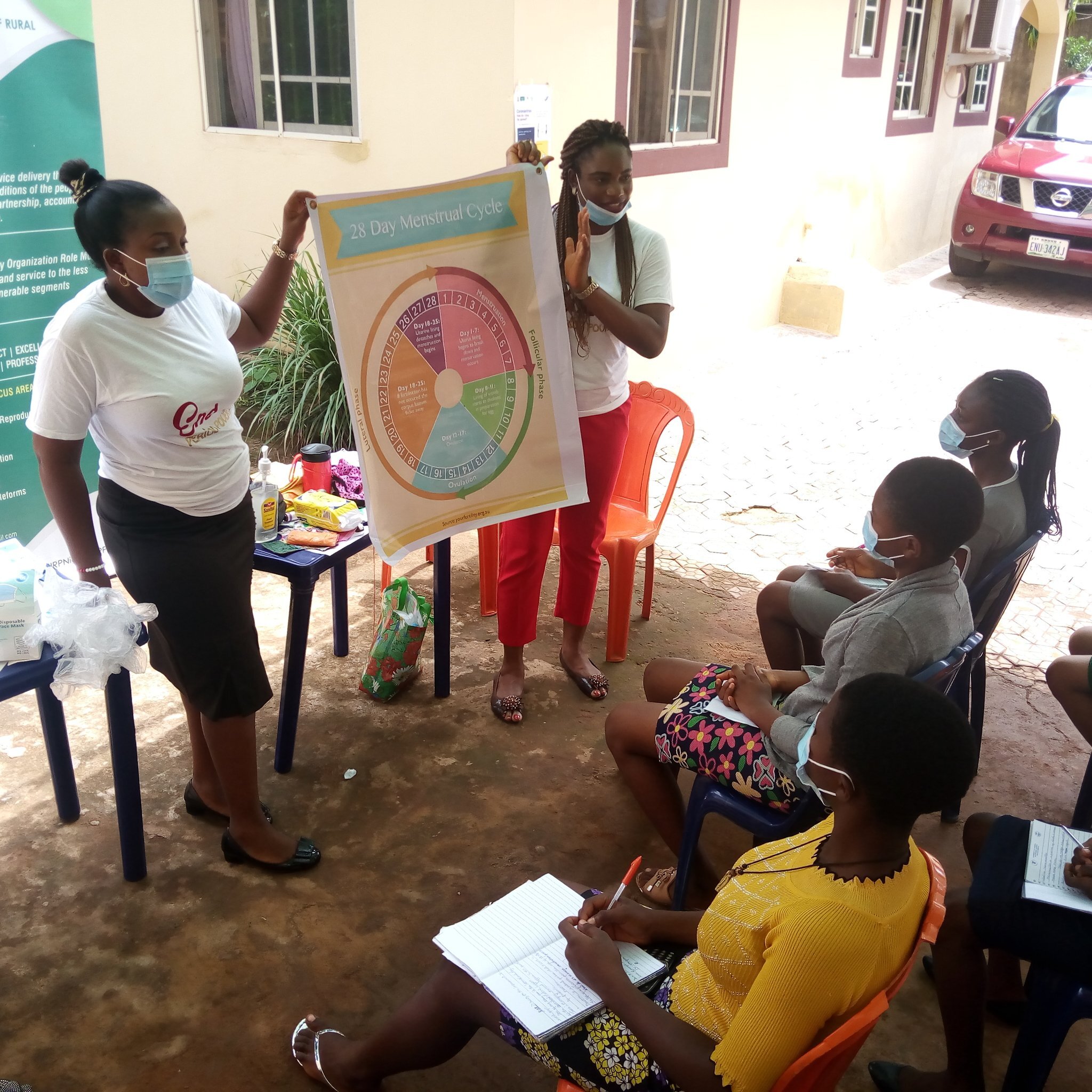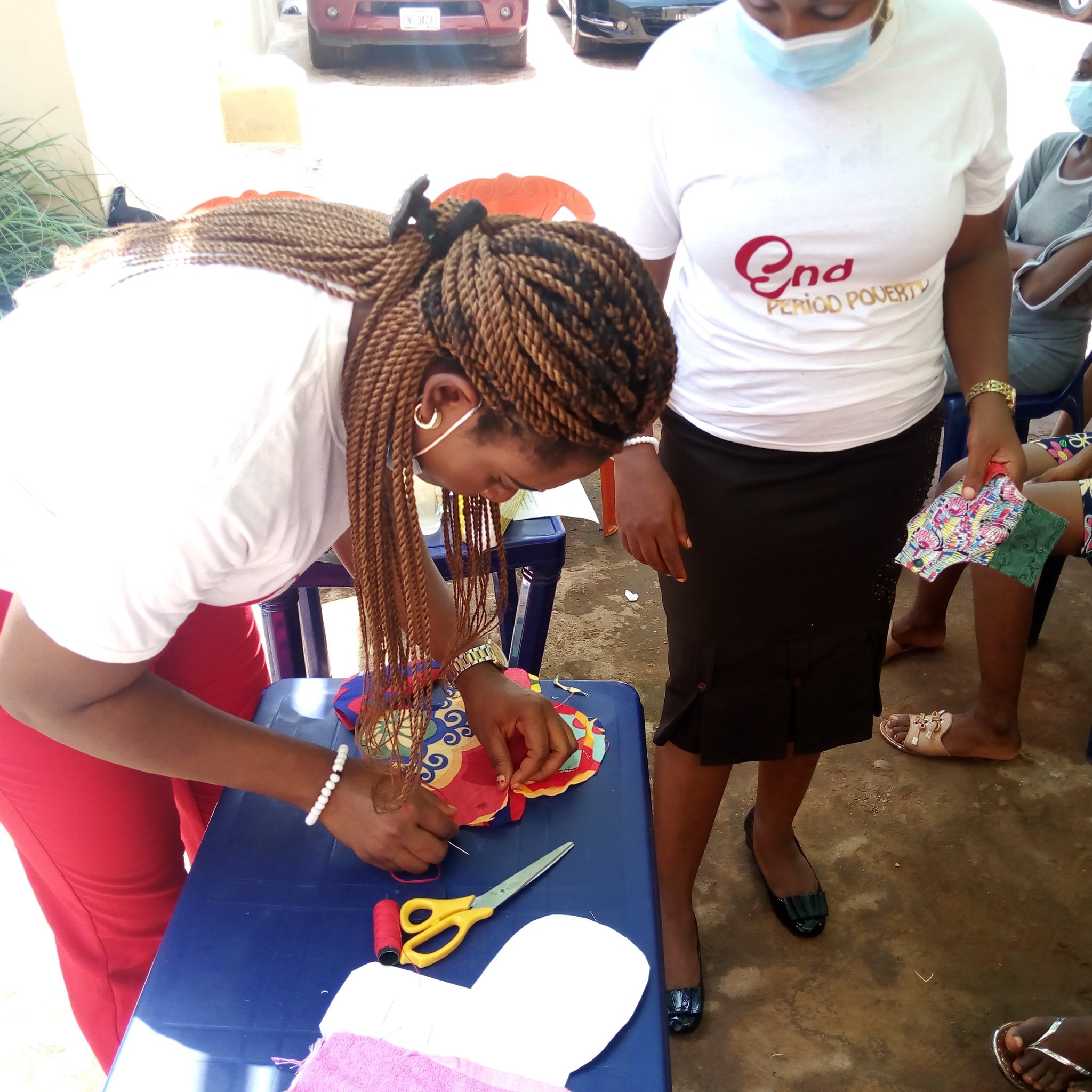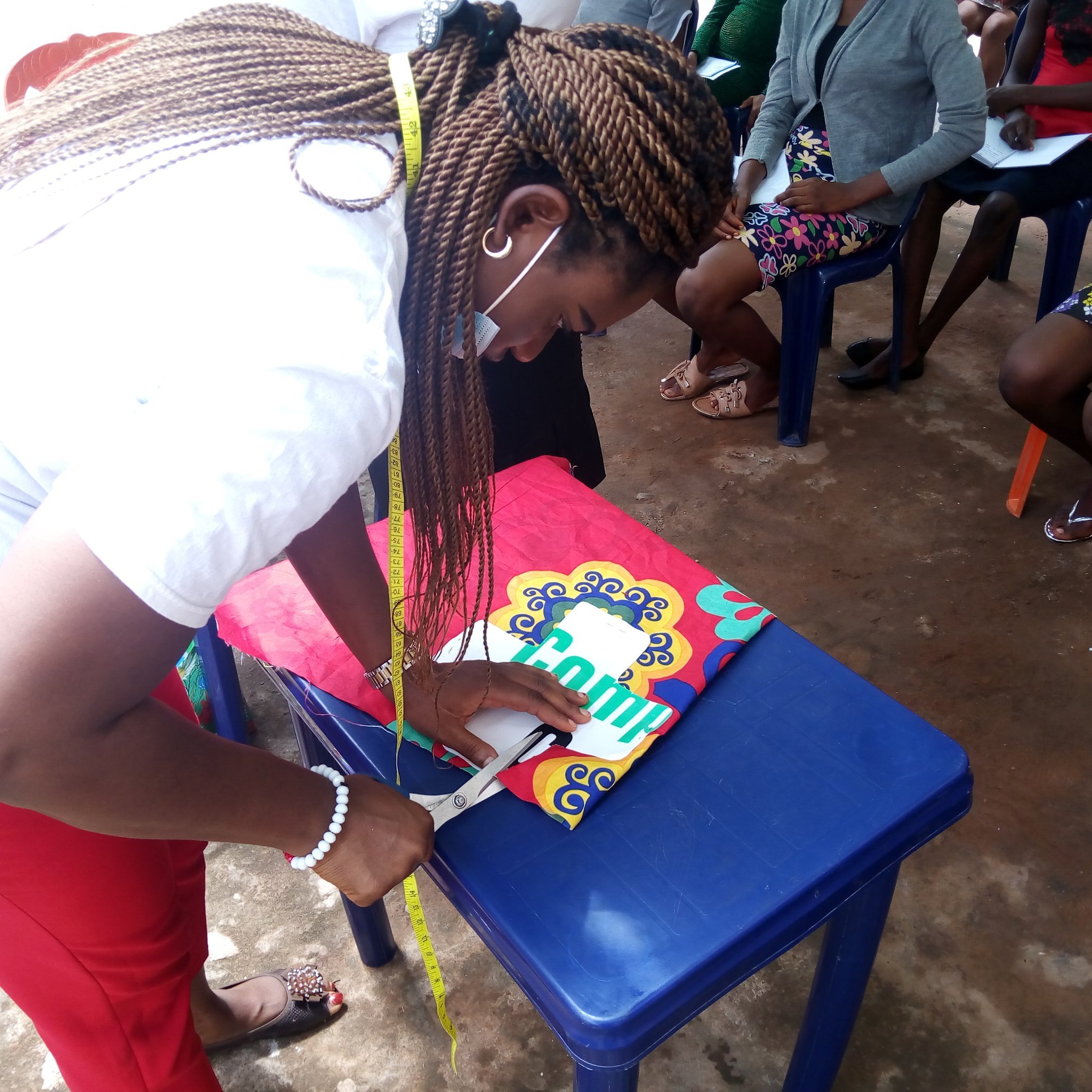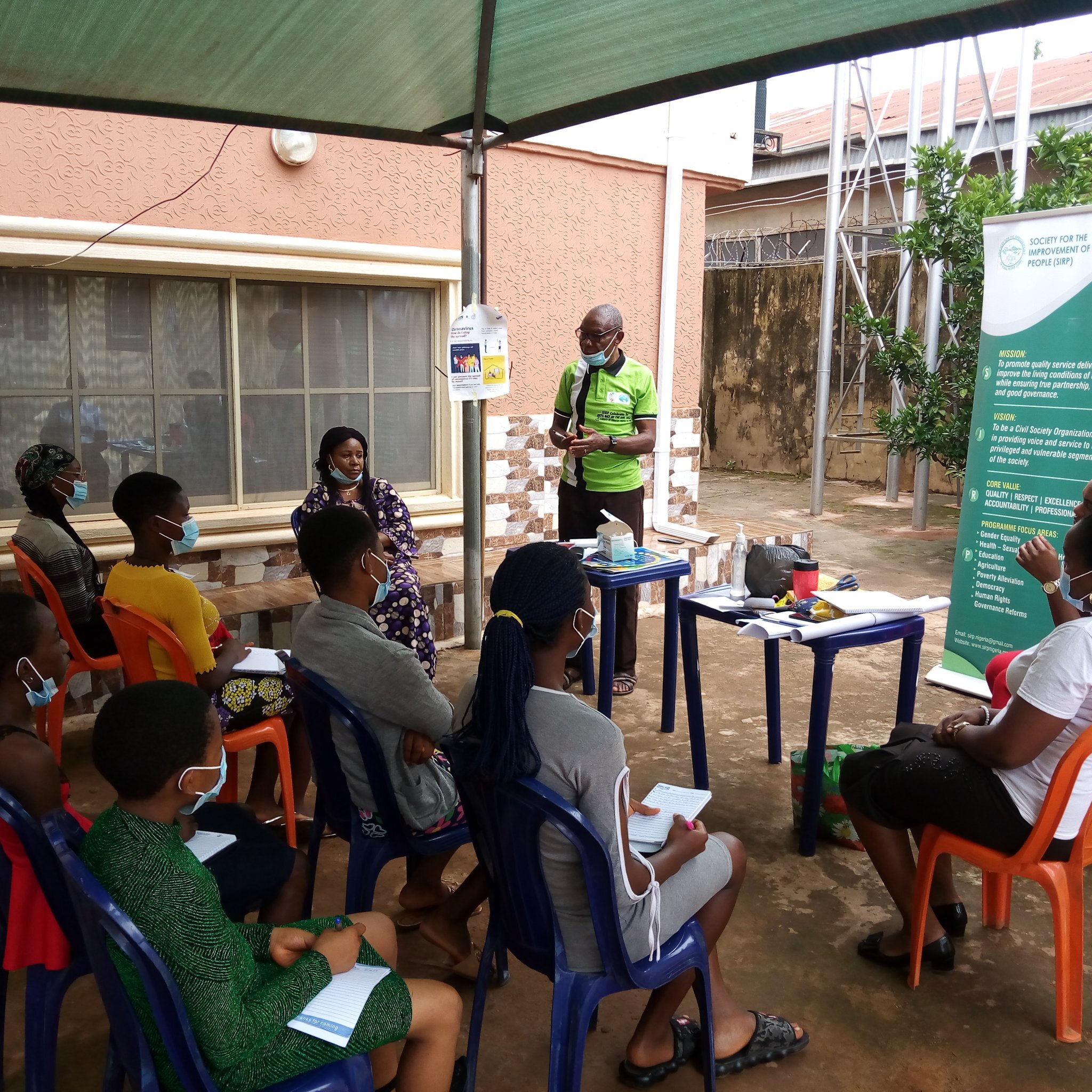The Society for the Improvement of Rural People in Enugu State, Nigeria, addresses all aspects of what it will take for women and girls to thrive in their communities. They continue to conduct workshops and seminars, whilst maintaining appropriate guidelines to ensure the health and safety of the community. SIRP's success in tackling the root causes of female genital mutilation (FGM) by working with traditional leaders and educators proved to be a great foundation as they confront the ongoing crisis on COVID-19.
With continued support from Rockflower, SIRP marked Menstrual Hygiene Management Day with a gathering designed to share best menstrual health practices and ways to make reusable sanitary pads. The information and assistance were both timely and well-received.
A direct consequence of the lockdown is the potential for increased gender-based violence, a resurgence in FGM, and greater use of drugs. Below are the thoughts Dr. Chris Ugwu, Executive Director of SIRP, shared with us.
“For rural communities in Enugu State, the immediate impact of the pandemic is not a direct health impact, but rather indirect. The virus originated primarily in our urban centers of Lagos, Abuja, Enugu, etc, and government responses have focused on containing the virus and "flattening the curve", as much as possible.
If the virus spreads at the same rate as it is doing currently in the urban centers; weaker health systems in our rural communities would cause the direct impacts of the virus to be felt more acutely, compounding the economic impacts. In the long term, whether the virus spreads to rural areas or not, it is very likely that food systems will be disrupted and economic challenges will continue, particularly impacting vulnerable rural households, especially women and children.
The group most vulnerable as COVID-19 rises in an astronomical rate (by today Nigeria has recorded 1728 infected cases, 307 discharged, and 51 death cases) are women. The disproportionate burden on women and girls as caregivers, household managers, and participants in the informal and insecure economy is brought into stark relief by this pandemic.
Because, rural communities in Enugu State have not been affected adversely by COVID-19, as they are usually seen as a secondary priority by the government. Meanwhile, the rural communities are already feeling the impacts of government shutdowns and social distancing measures- delaying support for them risks pushing them faster towards extreme poverty. Women in the rural communities of Enugu State are already at risk because of entrenched gender inequalities, in which women and men have differential access to help them cope with and recover from this kind of pandemic.
It's our thinking that as a strategy the Social Safety Net programs must be prioritized.
Action and Tools Needed: Access to relief funds and food palliatives distributed through credible community NGOs as partners. While social distancing and movement restrictions are crucial to slow the spread of COVID-19, agricultural channels must remain open. Cutting off these access points for vulnerable subsisting women rural farmers, for instance, removes both their opportunities to earn their additional income through employment and buy the right inputs for their farms, and risk their food security when they need to buy food to supplement their own crops.
Action and Strategy Being Recommended: The Chinese model "green lanes" in which rural farmers have relaxed lockdown guidelines that allow farmers to go to their farms on identified days."

